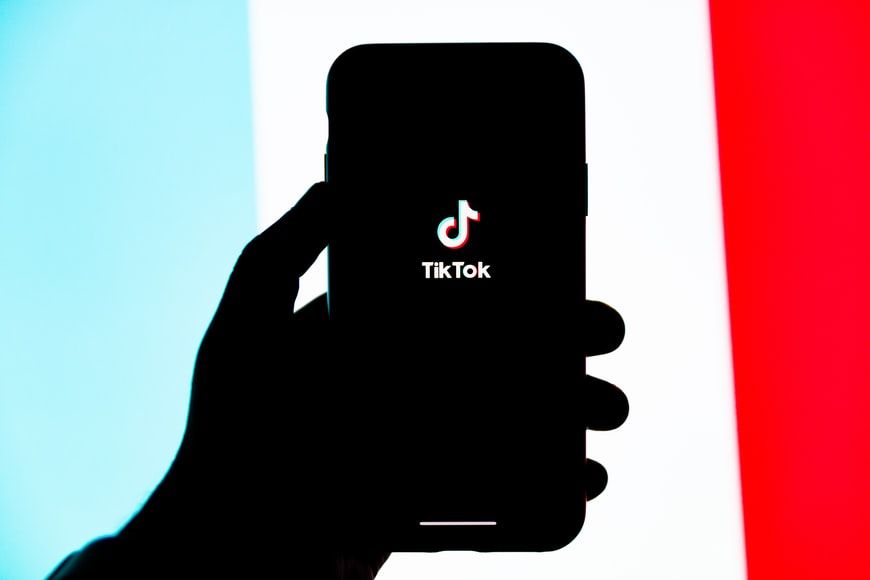
Facebook's Reel Response to TikTok's Growth Spurt

Facebook’s Reel Response to TikTok’s Growth Spurt
For the first time in its 18-year history, Facebook is in decline. The social networking giant saw a drop in daily active users and engagement levels in the past quarter prompting the greatest single-day stock drop in recorded history.
The company’s founder and chief executive, Mark Zuckerberg, identifies the short-form video-sharing platform TikTok as a major source of the problem.
As part of the TikTok defense strategy, Facebook introduced its short video feature called Reels in 2021 to a limited audience. The feature first started on Instagram and soon became the fastest-growing content format on the platform. Last month, it was made available to everyone on Facebook globally.
How TikTok Is Hurting Facebook

Soon after its launch in 2016, TikTok took the social entertainment space by storm. It was primarily built for lip-syncing and dancing videos but now hosts short-form videos from several genres, including pranks, jokes, stunts, tricks, cooking, and entertainment.
In less than five years, TikTok has achieved over three million downloads and more than a billion monthly active users. Here is how the platform is causing problems for Facebook.
1. A Drop in Daily and Monthly Active Users
Facebook experienced a first-ever drop in daily active users as competitors like TikTok gained ground. As reported by Forbes , roughly half a million users stopped using their accounts on a daily basis.
Facebook is losing a specific segment of consumers, namely Gen Z, to its rival TikTok.
2. Depleting Engagement Levels
Along with the decline in daily active users, Facebook is also suffering from depleting user engagement levels.
The average session length on the video-sharing app is 10.85 minutes, according to Statista . Meanwhile, other social media apps lag far behind in terms of engagement. This is a key metric for a platform like Facebook because the longer users stay on a platform, the more appealing it appears to advertisers.
3. Stagnating Ad Revenues
Advertisers account for more than 97% of Facebook’s annual revenue. According to Statista , the company generated $86 billion in global revenue in 2020—and a whopping $84 billion of it comes from advertising.
As engagement levels plummet, Facebook is bringing less money from ads because advertisers aren’t getting satisfactory returns from the ad spend. Apple’s App Tracker Transparency feature is also reported to be depleting ad revenue. The feature was introduced last year with the 14.5 iOS version to limit iPhone apps from tracking user data .
The decline in Facebook’s engagement level and the subsequent drop in revenue are adding up to a significant plunge in the company’s stock price. Meta, Facebook’s parent company, saw a stock drop of over $200 billion after a dismal quarterly earnings report.
How Facebook Plans to Regain Momentum

For the past few years, the social media landscape has shifted towards short-form video content, a space dominated by TikTok. It has become more popular, particularly among the younger demographics, because of the shorter users’ attention spans and the repetitive consumption of video content.
The problem for Facebook, and the entire Meta family of apps, is that its business is largely based on user engagement and serving ads. So, any service that occupies user time and engagement—such as TikTok—can threaten its growth.
Zuckerberg realizes the growing demand for short-form video content. Following the drop in stock price, he accepted the company is up against an “unprecedented level of competition” from TikTok. He asked Meta employees to focus on Reels, which has had significant success on Instagram.
Can Reels Save Facebook?

While short-form video may be trending, TikTok is an entirely different product, and it won’t be easy for Facebook to copy it as it did Stories from Snapchat. We wrote a full article outlining why the Reels vs. TikTok battle will be difficult for Facebook, so it’s worth checking that out if you want to learn more.
Facebook Is Seen as a Mixed Media Platform
Facebook is a mixed media platform that can accommodate photos, videos, text, link previews, and a mix of other types of content. Many younger audiences don’t consider it cool anymore, which is reflected in teens’ engagement on the platform.
TikTok, on the other hand, is a platform with the sole purpose of entertaining its audience. It is different from the life-logging of Instagram or chronicling of real life on Facebook. Unlike a social media platform like Facebook, TikTok represents a new form of social entertainment where users invent characters and act them out. This makes it distinct enough that it will be difficult to emulate it into Facebook.
For Facebook to rival TikTok, it has to reinvent itself as a brand new, highly sticky, and innovative app, far different from what it is today.
Facebook Is Late to the Game
Facebook has been losing popularity , especially among the younger generation, for a few years now. However, it was still attracting more users overall and earning tons of money—which is perhaps why the company hasn’t reacted as quickly.
Now that Facebook has decided to jump on the short-form video bandwagon, the audiences already have an alternative platform in the form of TikTok. If Facebook wants to take a real run at TikTok, Zuckerberg will have to pour lots of money into Reels.
Whether that happens or not remains to be seen; Zuckerberg has seemingly pinned much of the company’s future on creating a fully-realized digital world called the Metaverse. Zuckerberg has already dedicated over $10 billion on the project.
Some analysts believe that Facebook had underestimated the threat of TikTok by prioritizing other projects, and now it’s too late to win back younger users.
Monetization Issues

Even if Facebook succeeds at winning the attention of Gen-Z (prominent audiences of TikTok) with Reels, it still has to figure out a way to make it commercially successful. Short-form video won’t be as easy to monetize as long-form content.
Meta is testing ways for creators to monetize their content, including the Reels Play bonus program , but its viability is yet to be seen. The challenge for Facebook is to incorporate less intrusive ads into Reels without impacting user experience.
Reels vs. TikTok: The Final Verdict
The rise of TikTok and YouTube Shorts indicate that video is the future of social media, and Facebook has taken note. This may not make it seem inventive—but at this point, it doesn’t really matter. Facebook sees Reels as an integral part of its future, and it’ll need to do so if it wants to compete with the likes of TikTok.
Reels might be late to the short-form video scene, but with the powerful Meta brand behind it, it’s got every chance of succeeding.
- Title: Facebook's Reel Response to TikTok's Growth Spurt
- Author: Michael
- Created at : 2024-07-12 09:56:27
- Updated at : 2024-07-13 09:56:27
- Link: https://facebook.techidaily.com/facebooks-reel-response-to-tiktoks-growth-spurt/
- License: This work is licensed under CC BY-NC-SA 4.0.